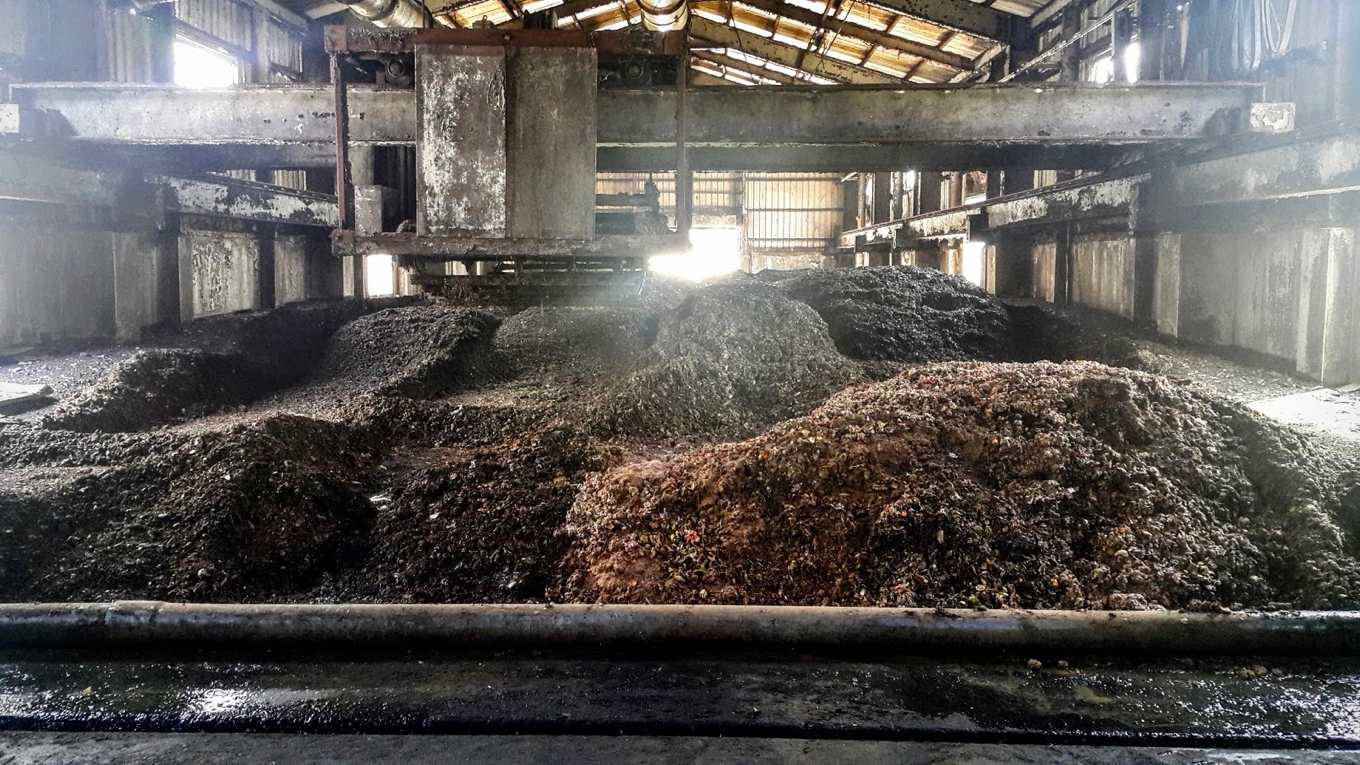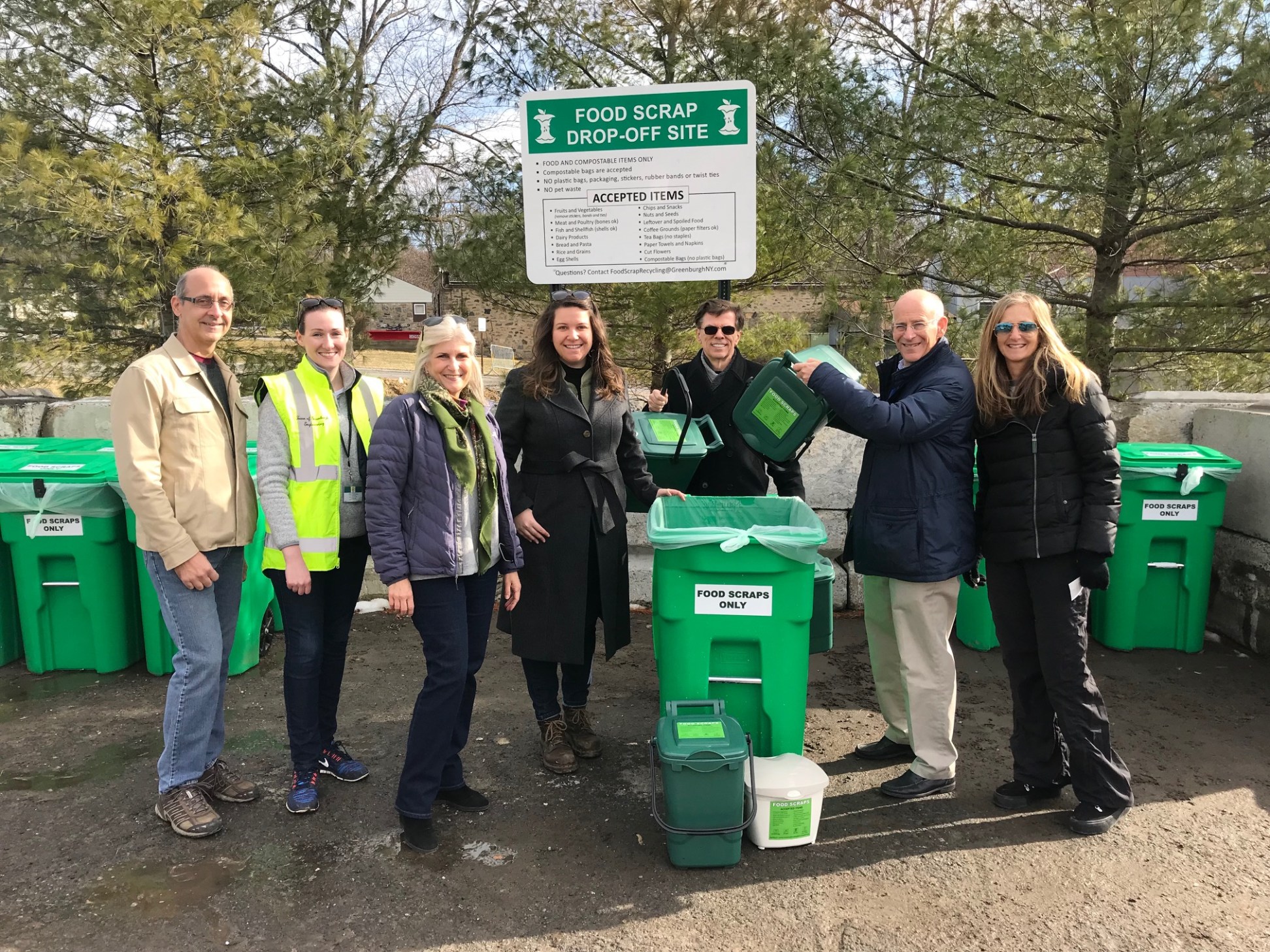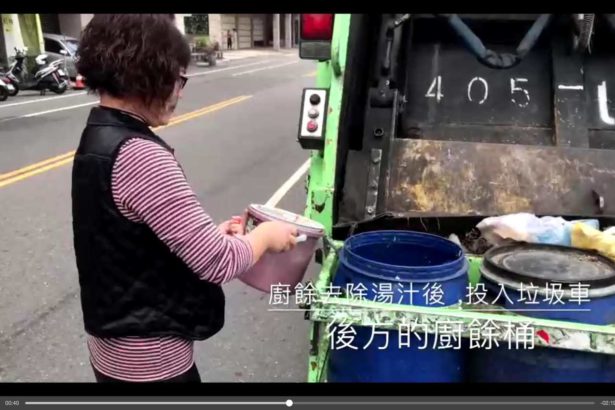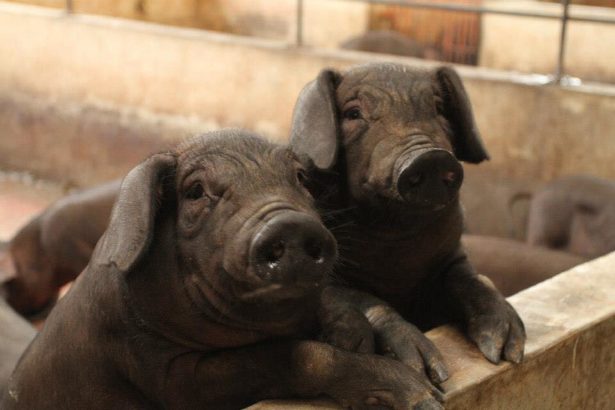Epidemic Prevention and the War of Kitchen waste 05 "opportunities and challenges for composting! Local kitchen waste can be made separately, even Daan Forest Park.
Share + 1 Tweet Email
(upstream and downstream reporters Cai Jiashan and Duan Yaxin / tr. by Phil Newell)
Taiwan produces about 1 million tons of cooked kitchen waste (leftover food that can be eaten by humans) every year, of which 770000 tons are recooked and fed to pigs. If there is a total ban on raising pigs, does Taiwan have the capacity to deal with 770000 tons of pig waste?.
The EPA plans three options, including composting, incineration and burial. However, the burning of salty kitchen waste together with plastic has the risk of producing dioxin, and affects the efficiency of the incinerator, the burial site is difficult to find and can not digest a large amount of food waste, both of which are considered as "bad choices". At present, there is only one biomass energy field in Taiwan, but only raw food waste can be put into use. Taichung and Taoyuan are two biomass energy farms one after another, of which only Taoyuan can accept cooked kitchen leftovers, and it will not be completed until 2020 at the earliest.
Considering that none of the above schemes can remove a large amount of kitchen waste, the EPA takes "composting" as the top priority and the first choice for the largest amount of food waste. However, cooked kitchen waste contains oil and salt, and it takes place and time to pile up and mature. In the event of an emergency outbreak of classical swine fever, can 770000 metric tons of kitchen waste be digested? Upstream and downstream visited the Environmental Protection Agency, Sun Shulin, president of Taiwan Kitchen waste Resource Development Association, Liu Jian of Linhai Farm, which has long produced cooked kitchen waste composting, and Yang Qiuzhong, academician of Academia Sinica and professor of environmental and soil science at Chung Hsing University. to explore the feasibility of kitchen waste composting.


Photo Source: https://greenburghnaturecenter.org/food-scrap-recycling/
Liu Mian of Linhai Farm: cooked kitchen leftovers are more suitable for composting than raw kitchen leftovers and faster.
"there is no problem with the technology of composting cooked food waste, and it is faster to make it." Liu Li, head of Linhai Farm, who has been promoting food waste composting for a long time, said that when his farm started to do it, it took food leftovers from school nutritious lunches, and the production process was less smelly, because the temperature came up quickly after fermentation, and it only took three months to turn it into fertilizer. On the contrary, it is raw kitchen waste to add more rice husks and sawdust to compost, and it is more smelly.
Liu also refutes the claim that salt and oil in cooked kitchen waste will interfere with composting. "No problem!" Because the compost will be fermented, and the vegetables grown have a natural salty taste, and there is no salinization problem in the soil.
Now the EPA says that the water in the kitchen waste should be drained first, but Liu Li believes that the water from the kitchen waste can also be used as liquid fertilizer. "it's better to put oxygen in and turn it into liquid fertilizer, and it's better to water the vegetables."
Linhai Farm 200ping composting site, which can handle 50 ─ 100t kitchen waste per month.
Liu Mian makes solid fertilizer and liquid fertilizer without adding microorganisms. But does the composting process stink? He said it will stink in the first few days, and once it starts to heat up and ferment, it will turn to a slightly sour flavor, but it may still cause complaints from the neighbors.
Liu Jian used folk power to promote composting of kitchen waste for more than a decade, but because in the past, pig farmers would collect the rest of the cooked kitchen, and no one paid attention to this area, and few people in the academic circle were willing to do research. "if you do this, your hands will get dirty."
At present, Linhai Farm has a site of about 200 ping for composting kitchen waste, which can handle 50 to 100 tons of food waste a month. On average, each ton of food waste can produce 300 kilograms of solid compost and 600 kilograms of liquid fertilizer, which can provide three-quarters of land for farm use.
Liu Jian suggested that now the government should step up efforts to promote kitchen waste composting and set up composting sites in various places. If a composting plant can have an area of 1,000 to 2,000 square meters and five to six workers, it can handle 500 to 1,000 tons of food waste a month, and nearby farms or residents planting flowers can benefit.
Series of reports on African Classical Swine Fever epidemic Prevention and Kitchen waste War
(for news related to African classical swine fever, please click here to read)
Share + 1 Tweet Email
- Prev

How many tons of kitchen waste is produced every day, and what are the problems caused by treatment? how much organic fertilizer?
Epidemic Prevention and the War of Kitchen waste 06 "General inventory of the production and removal of Kitchen waste in Taiwan (Liudu)
- Next

Epidemic Prevention and the War of Kitchen waste 08 "Pingtung has something to say: the ban on kitchen waste has an impact on the black pig industry chain, and non-food waste feed also needs to be paid attention to.
Epidemic Prevention and the War of Kitchen waste 08 "Pingtung has something to say: the ban on kitchen waste has an impact on the black pig industry chain, and non-food waste feed also needs to be paid attention to.
Related
- A course of planting techniques and methods on how to grow carrots
- How to plant the latest tulips?
- Is it better to pick tea in the morning or in the afternoon? When is the best time for tea to be picked? what is the third or fifth tea?
- Launch Yuanxiao Happy combination Haocha + Tea Yuan healthy Taste
- Penghu Tourism "Fireworks 20 Parade with You"
- 2022 West Lake Happiness holds "Digital Revitalization Voucher" and draws iphone13 and laptop.
- Banqiao Fuzhou social houses are designed to change start-up combined with police elimination to create a safe and livable environment
- The convenient measure of "mechanical weeding" in Xinbei has been abused and the Agriculture Bureau has imposed heavy penalties on the illegal land consolidation.
- Changgeng University Joins Hands with Four Memory Factories to Rescue Memory Talent Shortage
- The list of Taiwan's top 100 MVP managers is listed by the Director-General of the Farmers' Association of Sanxia District.

